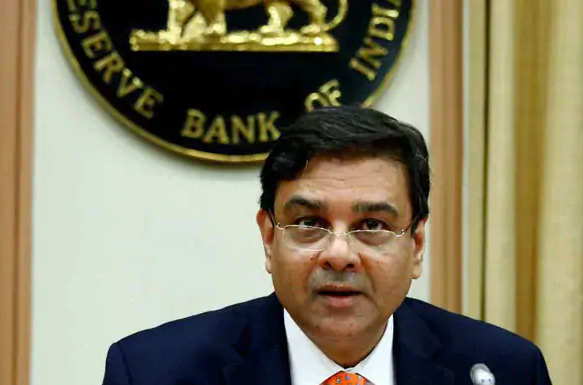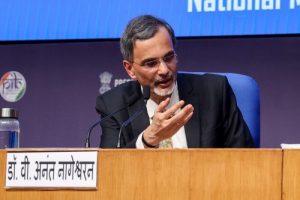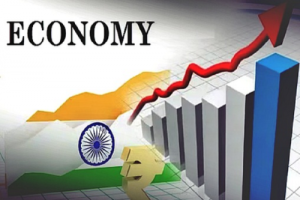Dr. Urjit Patel resigned as the Reserve Bank of India (RBI) governor today. Significantly, he was a part of the IMF between 1990 and 1995 where he had addressed central banks on debt market developments and banking sector reforms. Also, Between 1998 and 2001, he was a consultant to India’s ministry of finance.
More recently, In a statement released by Dr. Patel, he argued that, he stepped down on “account of personal reasons.” Nine months before his tenure was to end in Sep 2019, ending a twenty seven month long stint at Mint Street rocked by a testy debate on the central bank’s autonomy.
RBI central board member S Gurumurthy, Surprised at news that RBI Guv resigned. Previous meeting was held in such cordial atmosphere that it comes as a shock. All directors said media had created a wrong perception while inside it was different. That makes it even more surprising.
Although, In 2018, the agency and the government developed differences over at least six major issues such as Interest rates, NPA classification, Nirav Modi scam, NBFCs, Payments regulator. In 2014, the Patel-led committee recommended the RBI to follow an inflation-targeting approach, using consumer price inflation as the base, seeing inflation control as one of the key factors to stable economic growth.
Around the same time, as the Nirav Modi scam broke, the government hit out at the RBI on supervision, drawing an almost-immediate rebuttal with Patel seeking more powers to oversee public sector banks so that they are at par with their private sector peers.
The resignation of RBI Governor Sri Urjit Patel is a sad culmination of BJP led union govt’s destructive efforts to demolish critical national institutions. First CBI, now RBI. If this destruction continues, no institution will survive and Indian democracy will be in deep danger.
— N Chandrababu Naidu (@ncbn) December 10, 2018
While RBI’s February 12 circular on classification of non-performing assets (NPAs) & norms of loan restructuring was the next flashpoint. The government saw it as overly harsh, and indeed it drove all but two state-run lenders into the red.
Read Also, A Menace: India’s ‘Growth’ to Slow to 7.3% In 2019
Last month, CNBC-TV18 had reported that Patel is considering all options including resigning from his post following an unprecedented attack on the central bank’s functioning by finance minister Mr Arun Jaitley.
CNBC-TV18.
“There has been speculation of his resignation after deputy governor Viral Acharya’s speech last month that sought to defend the autonomy of the agency (RBI) and the subsequent differences between the government and the RBI over various issues related to liquidity, credit flow and the controls governing weak banks”, Economic Times.
The 54-year old Indian economist had served as the deputy governor for three years before his appointment as the governor on September 4, 2016.
RBI GOVERNOR QUITS DEC 10.
“The autonomy for the central bank, within the framework of the RBI Act, is an essential and accepted governance requirement. Governments in India have nurtured and respected this,” a brief Finance Ministry statement stated.
Here is the Urjit Patel’s full statement:
“On account of personal reasons, I have decided to step down from my current position effective immediately. It has been my privilege and honour to serve in the Reserve Bank of India in various capacities over the years. The support and hard work of RBI staff, officers and management has been the proximate driver of the Bank’s considerable accomplishments in recent years. I take this opportunity to express gratitude to my colleagues and Directors of the RBI Central Board, and wish them all the best for the future.”
Read Also, Autonomy for RBI vital, public interest paramount: Government
Meanwhile, The Karnataka Congress tweeted, “Resignation by RBI governor Urjit Patel is the reflection of Narendra Modi’s attempt to sabotage institutions to push his own modified economic theories. No educated economist can tolerate such attempts of amateurs.” In a tweet, Finance Minister Arun Jaitley acknowledged Patel’s contribution.
While Mamata Banerjee proposes opposition should meet again Tuesday, meet president on RBI issue.The resignation of RBI Governor Urjit Patel is disturbing, though there is little to be surprised about it. The incumbent Government at the Centre has time and again proven their expertise in destroying Institutions. The voices of reason and sanity are being stifled. Pinarayi Vijayan tweeted.
Tejashwi Yadav has also tweeted that, “First CBI and now RBI.. With the resignation of Governor Urjit Patel it is clear that for the first time in 70 years these institutions are being forced to organize looting, vengeance, corruption and dishonesty. They have to go soon, otherwise they will destroy all constitutional institutions and values”.
P Chidambaram on Urjit Patel’s resignation, becomes Saddened, not surprised, by Dr Urjit Patel’s resignation. No self respecting scholar or academic can work in this government. November 19 was the day of reckoning. Dr Patel should have resigned on that day. Dr Patel may have thought that government will re-trace its steps. I knew it would not. Good he quit before another humiliating meeting.
The government and the agency have been at loggerheads over whether the RBI has been too hawkish in its stance towards lenders and the economy given a drop in the inflation rate and signs of slower growth, as well as in the face of defaults by a major lender.
Both of them, The agency and government have been fighting for weeks over RBI autonomy as the Centre seeks to reduce curbs on lending and to gain access to RBI reserves. The friction came to light when Patel’s deputy, RBI deputy governor Viral Acharya, warned that compromising with central bank’s independence could be “catastrophic”. The report says.
Several Reports has assumed that, Patel has cited personal reasons for quitting the RBI, given the recent controversies, it’s not unreasonable to assume that Patel quit when the RBI autonomy faced pressures from the government. The fire was lit with RBI deputy governor Viral Acharya’s speech on October 26 defending the autonomy of the central bank.
The timing of Dr. Patel’s resignation is crucial. It comes 4 days ahead of the RBI’s scheduled board meeting on Dec 14, slated to discuss several contentious issues. He has cited “personal reasons”, but it is anybody’s guess why he chose to pull the plug.
The Government acknowledges with deep sense of appreciation the services rendered by Dr. Urjit Patel to this country both in his capacity as the Governor and the Deputy Governor of The RBI. It was a pleasure for me to deal with him and benefit from his scholarship. (1/2)
— Arun Jaitley (@arunjaitley) December 10, 2018
Read Also, Reserve Bank of India’s Policy Change Plunges Rupee to New Low
“The support and hard work of RBI staff, officers and management has been the proximate driver of the Bank’s considerable accomplishments in recent years. I take this opportunity to express gratitude to my colleagues and Directors of the RBI Central Board, and wish them all the best for the future,” Patel said in a statement.
The RBI board at its 19 Nov meeting decided to set up a high-powered committee to examine issues related to surplus capital of ₹9.69 trillion with the central bank. It also formed a panel to look at the issues plaguing NBFCs.
Inputs were followed by Twitter and Agency Reports.
Disclaimer:Youth Darpan (YD) is determined to include views and opinions from all sides of the spectrum it doesn’t mean we agree with everything we publish. But we do support their right to the freedom of speech. In case of content writers/editors/bloggers articles, the information, ideas or opinions in the articles are of the author and do not reflect the views of Youth Darpan. YD does not assume any responsibility or liability for the same.
























